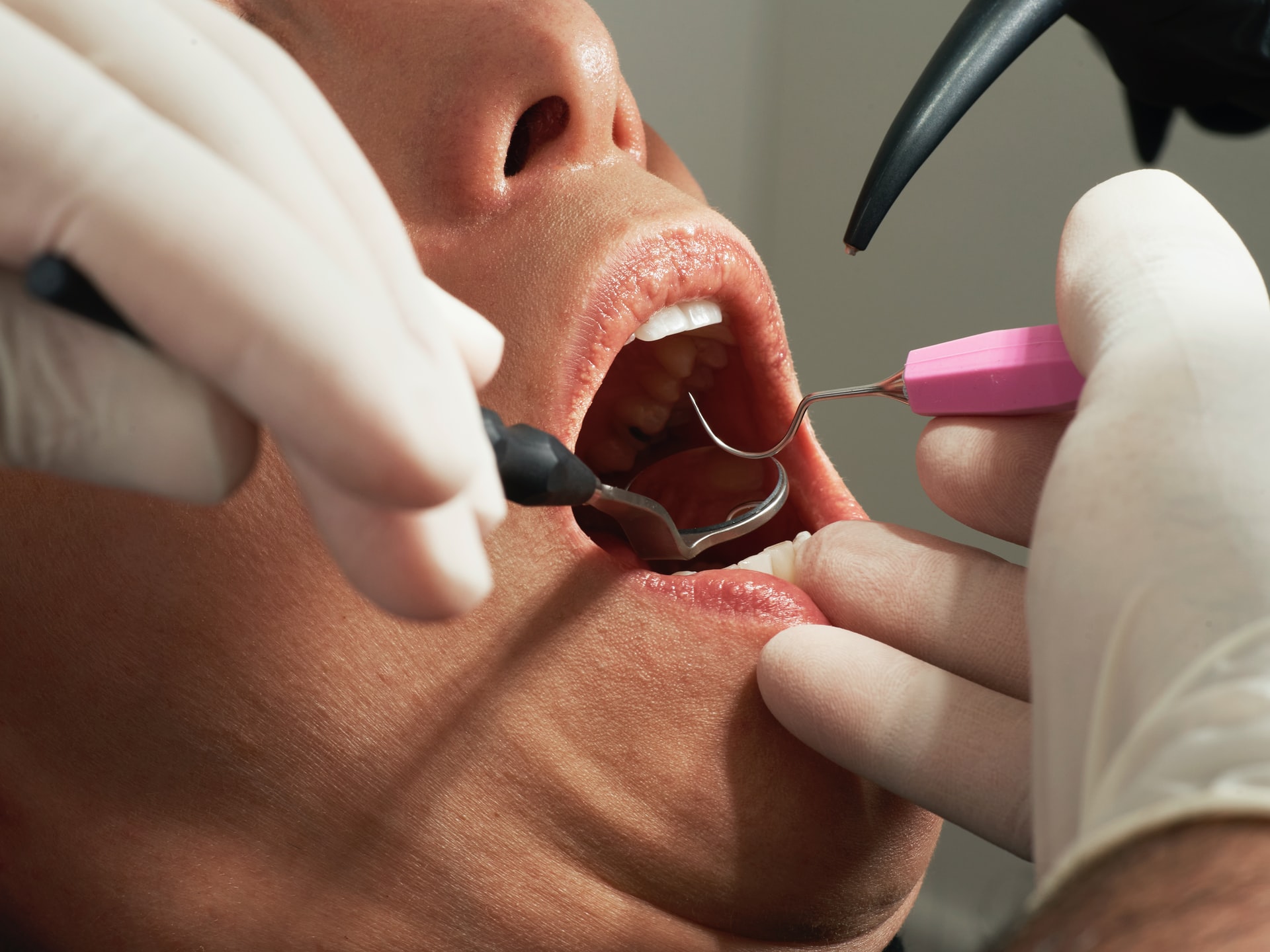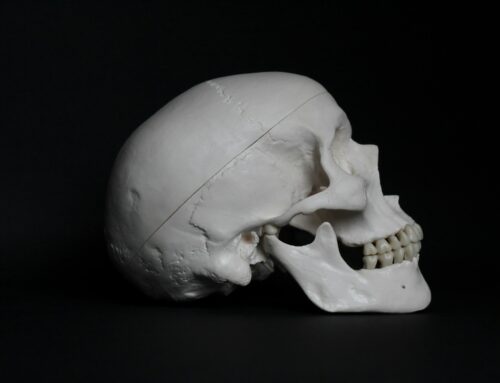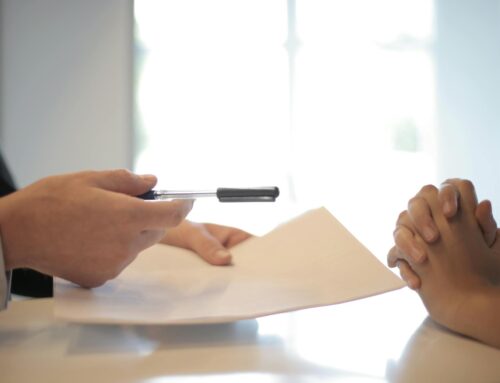A recent study has found that certain filtration devices could be used to greatly reduce the spread of aerosols in dental clinics. Aerosols are tiny particles that are released when we exhale. As a result, they can pass on Covid-19. But by using filtration devices, dental clinics can become much safer places.
A new study has tested the effectiveness of three filtration devices that can be used to help stop the spread of aerosols in dentistry.
The researchers focused purely on the impact of the filtration devices during scaling. Scaling is a popular dental procedure. Out of the three devices that were analyzed, two of them proved to be highly-effective [1].
The findings could result in increased safety in dental clinics. This is particularly important during Covid-19. Because Covid-19 can be spread through particles, filtration devices can limit their spread.
The study was able to interpret the results by using 3D holographic imaging. This modern technology uses advanced engineering imaging techniques, which provides researchers with in-depth information.
What is scaling?
Scaling is a very common dental treatment. It involves using a high-speed vibrating tool in order to remove tartar. Tartar is hardened plaque, and therefore needs extra care.
Scaling aims to remove this plaque by cleaning both above and below the gum line. Moreover, scaling is particularly useful for those with gum disease.
Scaling can be an effective procedure. However, the problem is that scaling causes high levels of aerosols to be released. Consequently, this can result in safety concerns.
Background
In August 2020, the World Health Organization (WHO) suggested that only essential dental appointments should be taking place around the world [2].
This was because dental procedures typically result in high quantities of aerosols. Aerosols are tiny particles that are released when we exhale. If a patient has Covid-19, these aerosols can lead to the transportation of the virus [3]. Therefore, Covid-19 could easily spread.
Covid-19 is frequently caught airborne. Many who have Covid-19 are asymptomatic, and may not realize they are carrying it [4]. Therefore, this makes dental procedures high-risk, hence why the WHO urged dental clinics to only provide essential appointments.
Around the world, restrictions are gradually loosening. But dental clinics remain a location where Covid-19 can spread. Furthermore, another complication is that there is a huge amount of untreated oral problems. Therefore, demand is increasing. For instance, the President of the FDI World Dental Federation has said that the Covid-19 lockdowns have caused a “dental disaster” [5].
The Research
The study was carried out by researchers at the University of Minnesota, Twin Cities. The research has been published in the Journal of the American Dental Association.
The study involved using a dental manikin and thermoplastic teeth, with the researchers aiming to mimic a real-life situation as closely as possible. Moreover, they used real dental hygienists [6].
The hygienists carried out the scaling procedure on the manikin. Meanwhile, the researchers used holographic imaging to view all of the particles that appeared as a result of the scaling [6].
Associate Professor Jiarong Hong, of the University of Minnesota, Twin Cities’ Department of Mechanical Engineering, commented on the research [6]. Hong said that the holographic imaging was a useful technique for analyzing the particles.
The researchers tested three devices that aimed to filter aerosols from their air. They were a saliva ejector (used for removing saliva and pooling water during patient care), a high-volume evacuator (used to reduce spatter and spray during dental hygiene procedures) and an extraoral local extractor (used as a vacuum to capture aerosols and filter contaminants during procedures) [5].
The results indicated that filtration devices can be very effective. The most effective device was the extraoral local extractor, which reduced particles by 96% during the scaling procedure [6].
The High-volume evacuator also produced strong results, helping to reduce particles by 88%. The saliva ejector was not too effective, only being able to produce a 63% reduction in particles [6].
What this research means
These findings can be very useful for dental professionals and patients alike. Hong spoke about how the findings could guide dental professionals on strategies to keep their clinics safe from Covid-19 [5].
Furthermore, the research will show dental professionals some good methods of reducing particles, and give patients reassurance when visiting the dentist. This can also have future benefits too. For instance, in the future, bugs like the flu could be transported less.
Hong also suggested that future research could involve looking at other tools. For example, a high-speed hand piece [5]. In conclusion, the aim is to find ways of increasing safety for dental staff and patients.
What we offer at Taradale Dental
Taradale Dental is a Calgary Dental Clinic that offer many services, including regular check-ups, cavity fillings, root canals and cosmetic dentistry.
Any dental problem should be addressed early, and can be identified at check-ups. This helps to prevent the problem getting worse. So, when further treatment is needed after a check-up, we provide our patients with a clear treatment plan.
The best way of avoiding extra treatment is to have strong oral hygiene. This includes brushing our teeth at least twice a day, flossing regularly, and getting a dental check-up at least twice a year. Avoiding sugary foods and drink and not smoking also helps.
Our Calgary-based dental clinic Taradale Dental also follows the Alberta Dental Fee Guide. This means our prices are competitive, transparent and affordable.
We would love you to visit us here at Taradale Dental soon! You can see more about us by visiting our website https://taradaledental.ca.
References
[1] Ou, Q., Placucci, R. G., Danielson, J., Anderson, G., Olin, P., Jardine, P., Madden, J., Yuan, Q., Grafe, T. H., Shao, S., Hong, J., & Pui, D. Y. H. (2021). Characterization and mitigation of aerosols and spatters from ultrasonic scalers. The Journal of the American Dental Association. (Pre-Publication). DOI: https://doi.org/10.1016/j.adaj.2021.06.007.
[2] Kulsrud, Z. (2020). World Health Organization advises delaying of nonessential dental care in areas of COVID-19 community transmission. Available: https://www.dentistryiq.com/dentistry/article/14181510/world-health-organization-advises-delaying-of-nonessential-dental-care-in-areas-of-covid19-community-transmission. Last accessed: 11th November 2021.
[3] Ehsanifar, M. (2021). Airborne aerosols particles and COVID-19 transition. Environmental Research. 200: 111752.
[4] Yu, X., & Yang, R. (2020). COVID‐19 transmission through asymptomatic carriers is a challenge to containment. Influenza and Other Respiratory Viruses. 14 (4): p474-475.
[5] FDI World Dental Federation. (2021). FDI – Dental disaster: One year after first lockdowns dentists around the world confront the consequences of the COVID-19 pandemic on people’s oral health: higher incidence of tooth decay and more advanced gum disease. Available: https://www.prnewswire.com/in/news-releases/fdi-dental-disaster-one-year-after-first-lockdowns-dentists-around-the-world-confront-the-consequences-of-the-covid-19-pandemic-on-people-s-oral-health-higher-incidence-of-tooth-decay-and-more-advanced-gum-disease-890594795.html. Last accessed: 11th November 2021.
[6] University of Minnesota Twin-Cities. (2021). Filtration devices could make dentist appointments safer during the COVID-19 pandemic. Available: https://twin-cities.umn.edu/news-events/filtration-devices-could-make-dentist-appointments-safer-during-covid-19-pandemic. Last accessed: 11th November 2021.




[…] Recent Study Has Found That Certain Filtration Devices Could Reduce the Spread of Aerosols in Dental Clinics. Click Link to Know More! […]